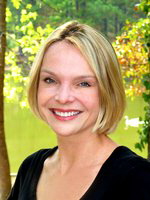- Calls to this hotline are currently being directed to Within Health, Fay or Eating Disorder Solutions
- Representatives are standing by 24/7 to help answer your questions
- All calls are confidential and HIPAA compliant
- There is no obligation or cost to call
- Eating Disorder Hope does not receive any commissions or fees dependent upon which provider you select
- Additional treatment providers are located on our directory or samhsa.gov
Recovery Story – Nicole Siegfried

Nicole Siegfried

My story isn’t anything glamorous, sensational, or extreme. I didn’t almost die. My family didn’t have to perform an intervention. I didn’t even have to be hospitalized. In fact, like many people with eating disorders, I don’t think anyone would have known I had an eating disorder just by looking at me. I did well in school; I had a lot of friends; I had a boyfriend and a supportive family. On the surface, I didn’t seem to “have a reason” to have an eating disorder, which actually made me feel more guilty for my secret. I was bulimic. I was empty and fragmented. I was concerned more with what people thought about me than who I really was. I was a charlatan I lied to my friends and family, stole money from my roommates, and lost my “self” to the eating disorder. I was miserable.Finally, my parents found out, so I began treatment. I thought that beginning treatment would be the “turn around” – that once I came clean, I wouldn’t want to do it anymore. This didn’t happen. So I began pretending to recover. I worked hard to develop the facade of recovery to overlay my charlatan mask. I kept waiting to feel better, waiting for it to be easier to fight the binge or fight the purge. That time never came. I never “felt” like recovering. I told myself every night that “tomorrow will be another day”- a new day where I would feel like recovering. Instead, every day brought with it another spoke in the wheel of the cycle of the disorder.Finally, I’d had enough- not really “enough of the eating disorder” or even “enough of recovery”- but more like I’d had enough of being fraudulent“ of living an inauthentic life“ of betraying my true self. I remember making a conscious decision to begin recovery“ not a decision to stop my disorder. I realized that trying “not to do something” wasn’t working for me- I had to try TO DO something. I began focusing on the person I wanted to be instead of the person I was trying not to be. I began to get to know myself, which was frightening, because I was afraid I wouldn’t like who she was.The road of recovery was still rocky and I had slips, but I had direction. I went to graduate school; I got married and had children. I still had difficult experiences. I got divorced. My father developed cancer. But I no longer used my eating disorder to cope. Today, I believe I am a woman of substance, not because I have a PhD or even because I recovered from my eating disorder. I’m a woman of substance because I’m finally full- full of life and full of my “self.”Nicole believes strongly in treating the entire person and in her practice has worked closely as a team with psychiatrists, physicians, and dietitians to meet her clients’ needs. Nicole is also a tenured Associate Professor of Psychology at Samford University, where she has received several teaching awards and is a favorite among students.

The EatingDisorderHope.com editorial team comprises experienced writers, editors, and medical reviewers specializing in eating disorders, treatment, and mental and behavioral health.

